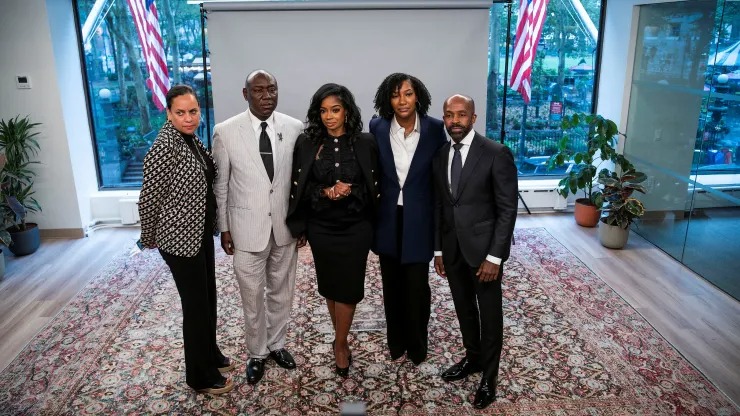In a decision that could fundamentally alter the dynamics of venture capital allocation for minority-owned enterprises, the 11th Circuit Court of Appeals issued a provisional injunction against the Fearless Fund’s grant program, uniquely tailored for Black women entrepreneurs.
This critical ruling aligns with the perspectives of conservative activists led by Edward Blum, who contend that programs explicitly based on racial criteria are inherently discriminatory. This judicial stance posits a significant challenge to the efforts to correct long-standing inequities within the venture capital sector.
Such a judgment impacts the Fearless Fund and sets a precedent that may influence the structure and legality of similar diversity-driven initiatives across the business landscape, potentially stifling efforts to foster inclusivity in industries traditionally dominated by non-minority entities.
Background of the Case
Founded with the mission to address the severe disparities in venture capital funding, the Fearless Fund has served as a critical resource for Black women business owners, who historically have been significantly underrepresented in this sector.
According to statistics provided by the fund, businesses owned by Black women garnered less than 1% of the whopping $288 billion allocated by venture capital firms in 2022. This glaring gap prompted the Fearless Fund to launch a specialized grant program, offering $20,000 and additional resources to empower these entrepreneurs to scale their businesses and increase their market competitiveness.
However, this well-intentioned initiative quickly became the focal point of a contentious legal battle. The American Alliance for Equal Rights, spearheaded by Edward Blum—a conservative activist renowned for his legal challenges against affirmative action and other race-based policies—filed a lawsuit against the Fund.
Blum’s group argues that the program’s exclusive focus on Black women constitutes racial discrimination, thus violating federal laws designed to ensure equality in contractual agreements. This legal challenge underscores the complex intersection of race, economics, and law as it seeks to dismantle what some see as a necessary corrective measure within the venture capital landscape.
Legal Proceedings and Arguments
The controversy reached the 11th Circuit Court of Appeals after a lower court initially allowed the program to continue during the litigation. The appellate court’s decision reverses this earlier ruling, arguing that the grant program will likely be deemed discriminatory under current laws. Edward Blum’s group contends that the initiative violates a 19th-century federal law prohibiting racial discrimination in contracts.
In stark contrast, advocates for the Fearless Fund argue that the grants are charitable acts meant to address historical inequities, not contracts per se. They maintain that these initiatives are protected under the First Amendment as expressions of belief in the economic importance of Black women.
Court’s Rationale and Majority Opinion
The court’s majority opinion, led by judges appointed by former President Donald Trump, stated that the program did not qualify for speech protections and dismissed the notion that the plaintiffs lacked standing to sue. The court expressed that the program’s racial exclusivity could not be justified as expressive conduct and that allowing it to continue would essentially endorse a discriminatory practice.
The decision was not unanimous. Judge Robin Rosenbaum’s dissenting criticized the majority’s stance as overly broad and potentially harmful to efforts to correct historical racial disparities in business. Rosenbaum accused the majority of ignoring the substantive benefits of the program, focusing instead on a narrow interpretation of the law.
The ruling has sent shockwaves through the civil rights and business communities. Supporters of the Fearless Fund view the decision as a significant setback for diversity and inclusion efforts in the corporate sphere. Critics of the ruling argue that it undermines initiatives designed to level the playing field for historically marginalized groups.
Meanwhile, Edward Blum and his organization have hailed the decision as a victory for equality, asserting that the law must be blind to race and that all forms of racial classification are inherently divisive.
Reactions from the Business and Legal Communities
The decision has polarized opinions among legal experts, business leaders, and civil rights activists. Some argue that the court’s ruling could deter other venture capital firms from initiating similar programs for fear of legal retribution. Others believe the ruling upholds the principle that the business world should operate without racial considerations.
Legal experts predict this case might reach the Supreme Court, given its significant implications for affirmative action and diversity initiatives across various sectors. The outcome could set a precedent for implementing racial equity measures in private and public funding.
As the legal battle continues, the future of the Fearless Fund’s grant program hangs in the balance. This case exemplifies the ongoing national debate over the role of race in business and education policies.
While the court’s ruling is preliminary, its ramifications are already being felt across the nation, as it challenges the delicate balance between fostering diversity and adhering to a legal framework that prohibits racial discrimination. As this case progresses, it will undoubtedly continue to ignite discussions on equality, equity, and the proper role of race in American society.










